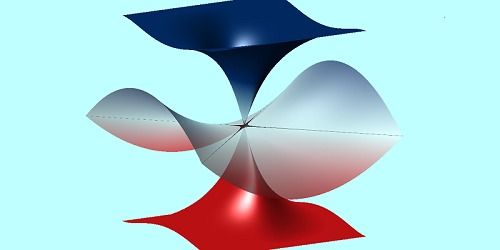Researchers fabricated a cavity device with a large number of “exceptional points,” which are modes that exhibit exotic phenomena, such as extreme sensitivity to external parameters.
One of the fundamental laws of physics is that energy is conserved, but many local physical systems—seen in isolation—gain or lose energy. For example, a light bulb converts electrical power into radiation, which from the perspective of the electrical circuit is a loss of energy. By contrast, a light beam gains energy as it passes through an amplifying medium. Although one can model the inputs and outputs, it’s often mathematically simpler to just treat energy as a locally nonconserved quantity. Nonconservative systems, referred to as non-Hermitian, have attracted a great deal of interest because they can exhibit potentially useful phenomena, such as enhanced sensing [1] and robust single-mode lasing [2]. These phenomena are intimately related to the ability of non-Hermitian systems to support exceptional points, a type of degeneracy in which two or more modes suddenly coalesce into one (Fig. 1).
